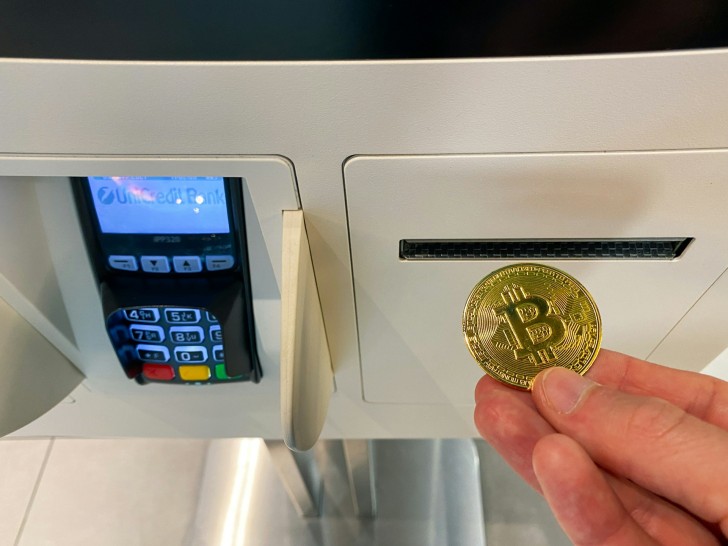There’s a little relief, though. You can now think about pricing and budgeting without worrying about hidden fees, thanks to cryptocurrency. More and more, you can pay for a flight, a hotel, or a package and use a cheaper open market currency that is still secure.
An Improvement for Budget Travelers
So, how to travel on a budget? Travelers used to always scour the web for travel coupons and discounts for low-cost airlines. Now it could simply mean buying airplane tickets with Bitcoin. Payments and identification can now be done without human interactions and banks. A client can simply walk into a hotel lobby, scan a QR code, and pay the exact amount without any conversion fees.
You can probably stake your cash without worrying about your money a little more. You can, for blocks or work. And that is what you currently use to pay for tickets, hotel reservations, or travel packages.
Crypto Payments in Tourism: What You Need to Know
Let's say you're traveling and you’ve decided to use cryptocurrency. Here’s how it all works.
Crypto is simply another form of currency. Most people store it in ‘wallets’ on their phones. When you spend cryptocurrency, the amounts are logged into a secure digital ‘ledger’ known as a ‘blockchain’. It’s secure because it’s decentralized, so people can’t tamper with it.
In contrast to conventional banking systems, blockchains do not rely on banks and payment processors to complete transactions. Instead, they are executed between users. This means that people can make transactions in real-time, and there are no costs associated with banking intermediaries.
You, the traveler, can send payments immediately without added fees, and there are:
- No exchange rates
- No international payment holds
- No other fees that would otherwise take a bite out of your budget.
The Travel Industry and Blockchain Technology
Travel businesses, too, realize that their assessments on the use of blockchain in their operations is to streamline processes and save costs.
Crypto transactions, for instance, capture all the benefits of:
- Lower costs. There are no transactions with currency conversion and card processing fees.
- Reduced fraud. Blockchain systems and records are tamper-proof and capture all transactions regarding an entity.
- Faster payments. Moving money crosses borders without the traditional banking systems and holds, allowing near real-time transfers.
- Transparent transactions. Smart contracts can automate processes slated to take days, thereby improving transaction speeds and eliminating delays associated with manual processes.
It’s clear there are great benefits from the traveler’s perspective as well. Using crypto can help you get better deals, avoid the waiting time for transactions, and keep track of your spending. Every dollar spent can be tracked and accounted for – there are no hidden fees.
Most Travel Companies Using Cryptocurrency
More and more travel companies are accepting crypto. Major travel companies and services now allow you to use digital currency for payments.
- Airline companies like airBaltic and Vueling accept Bitcoin and Ethereum to pay for plane tickets.
- Services such as Travala and CheapAir allow payments for services using various crypto.
- Many hotel chains and agencies throughout Europe and Asia now allow guests to pay crypto for reservations.
- In geo location such as the Middle East, crypto-friendly tourism continues to grow. In Dubai, luxury hotels take crypto payments while the city positions as a global leader for blockchain technologies.
It’s clear: tourism industry has adapted to using blockchain technologies.
Perhaps the best advantage is the one for budget travelers. Using crypto to make payments keeps banks and other “middlemen” out of the picture. You save on bank and currency conversion fees. This can save you a lot of money on long trips and trips to several countries.
And the benefits don’t stop there. The technology behind crypto – the blockchain – is also improving contracts and other back-end stuff. Instead of earning and redeeming loyalty points which never seem to expire, some travel companies give travelers ‘travel tokens’ – digital assets that can be redeemed and are a lot easier to use. You can even trade them. This improves customer satisfaction and there are fewer headaches for travel companies.
If you earn travel tokens from an airline, for instance, you should be able to use them to book a hotel room with a partner at the hotel. You can be able to do this without worrying about any restrictions. This is the future with loyalty systems on the blockchain.
The Crypto Catch: Risks and Regulations
Even with all the benefits of crypto travel, there are a few minor problems.
The most important one? Price. The price of a cryptocurrency can change dramatically and go up or down. If you locked in a price of a Bitcoin for a ticket, the price could drastically change, and you could end up paying a lot or not paying enough for the ticket.
Lastly, check the crypto and travel policies of all the countries you are passing through or visiting. Some countries have strict rules regarding cryptocurrency while others do not recognize it at all.
And most importantly, security is in your hands. Losing access to your crypto wallet or getting scammed make recovery complicated. Stick to:
- Trusted apps
- Two-factor authentication
- Keep your private keys to yourself
Your journey in crypto can be safe and smooth if you take a few simple precautions.
Traveling Smarter, Safer, and More Easily
Traveling on a budget doesn’t mean you have to cut corners, it just means you have to be smarter about it. Blockchain and crypto payments let travelers dictate how they spend, save, and secure their money while abroad.
We are in the early stages of a digital travel revolution, and the path is clear: it is about to become easier and more liberating. If you are a frequent flyer or an exploratory traveler, understanding crypto is about to become as important as having your passport.
With transactions that are instant and transparent, the blockchain revolution goes beyond changing tourism. It changes how we travel and interact with the world.
 Editorial staff
Editorial staff

 Editorial staff
Editorial staff


